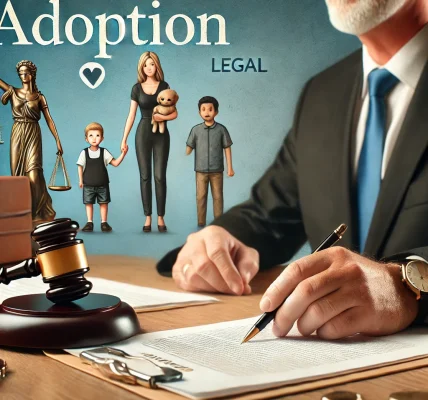Introduction
Parental alienation is a critical issue in family law that occurs when one parent manipulates a child to turn against the other parent, often in the context of divorce or custody battles. This behavior can have severe psychological effects on the child and negatively impact the parent-child relationship. Courts recognize parental alienation as a serious concern, and legal remedies are available to address it.
This article explores the concept of parental alienation, its impact on children, legal remedies, and how courts handle such cases.
What is Parental Alienation?
Parental alienation occurs when one parent deliberately influences a child to reject or resent the other parent without valid justification. This often includes false accusations, limiting communication, or portraying the other parent negatively.
Common Signs of Parental Alienation
- Negative Talk: One parent badmouths the other parent in front of the child.
- Interference with Communication: Restricting phone calls, messages, or visits.
- False Allegations: Accusations of abuse without evidence.
- Encouraging Defiance: Convincing the child to refuse visitation or contact.
- Withholding Information: Not informing the other parent about the child’s important events.
Psychological Effects on Children
- Emotional distress and confusion.
- Anxiety, depression, and low self-esteem.
- Difficulty forming stable relationships.
- Guilt and anger towards both parents.
Legal Remedies for Parental Alienation
1. Custody Modification
Courts may change custody arrangements if parental alienation is proven. A judge may award sole custody to the alienated parent to protect the child’s well-being.
2. Court-Ordered Therapy
Family courts can mandate therapy for the child and the alienating parent to rebuild the damaged relationship and educate parents on healthy co-parenting.
3. Contempt of Court Charges
If one parent repeatedly violates a custody order or engages in alienation, the court may hold them in contempt, leading to fines or other penalties.
4. Supervised Visitation
To prevent further alienation, courts may require supervised visitation, where a neutral third party monitors interactions.
5. Parental Coordination Programs
Courts may require high-conflict parents to work with a parental coordinator to facilitate healthy co-parenting.
6. Legal Penalties and Sanctions
In extreme cases, courts may impose fines, limit parental rights, or order community service for the alienating parent.
How Courts Handle Parental Alienation Cases
1. Identifying Parental Alienation
Family courts rely on various factors to determine if alienation is occurring, including:
- Witness testimonies (from teachers, counselors, family members).
- Psychological evaluations.
- Patterns of behavior showing interference with custody or visitation.
2. Evaluating the Child’s Best Interests
Courts always prioritize the child’s best interests. If alienation is harming the child’s emotional well-being, judges may intervene to change custody or visitation rights.
3. Expert Testimonies
Mental health professionals, child psychologists, and custody evaluators provide expert opinions on how parental alienation affects the child.
4. Implementing Court-Ordered Solutions
Depending on the severity of the alienation, courts may implement one or more of the legal remedies mentioned earlier to correct the situation.
Conclusion
Parental alienation is a damaging issue that affects children and families. Recognizing the signs early and taking legal action can help prevent long-term harm. Courts take allegations of parental alienation seriously and offer various remedies to protect the child’s emotional and psychological well-being.




